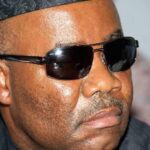Expert Urges Nigerian Government to Establish Committee for Implementing China-Nigeria Bilateral Agreements
The Federal Government of Nigeria has been advised to establish a special committee to ensure the effective implementation of the 13 bilateral agreements recently signed between Nigeria and China.
This recommendation came from Mr. Charles Onunaiju, Director of the Centre for China Studies in Nigeria, who emphasized the importance of taking these agreements seriously to advance Nigeria’s national economic goals.
During President Bola Tinubu‘s recent trip to China, 13 crucial agreements were signed between Nigeria and China, adding to the eight agreements reached between Africa and China during the Forum on China-Africa Cooperation (FOCAC).
The agreements cover a wide range of sectors, aiming to strengthen economic cooperation between the two nations.
Chinese Ambassador to Nigeria, Yu Dunhai, has already pledged to ensure that the agreements are implemented for the mutual benefit of both countries.
However, Onunaiju stressed that Nigeria must take immediate and proactive steps to make the most of these opportunities.
Speaking on the need for urgency, Onunaiju said, “The implementation of these agreements will help President Bola Tinubu achieve his transformation agenda.
“These outcomes are substantial and significant enough to help turn around to a significant degree the country’s national economic fortune.”
Onunaiju highlighted that the agreements present a golden opportunity to positively impact Nigeria’s economy, stressing that the potential can only be realized if the government is diligent in its follow-up. H
e called for the creation of a special national implementation committee tasked with ensuring that both the Nigeria-China bilateral agreements and the FOCAC outcomes are effectively executed.
He emphasized that the agreements, though not a “magic wand,” offer substantial prospects for Nigeria’s economic recovery.
He stated, “If President Tinubu wants his reforms to make the difference he sincerely wishes, he should leverage the outcomes of Nigeria-China bilateral cooperation and the FOCAC.”
Onunaiju stated that the Nigerian government should go beyond the usual bureaucratic processes and establish a dedicated committee that operates outside typical ministerial or governmental structures.
The committee, he argues, would help avoid the agreements being lost in “Nigerian bureaucracy” or institutional rivalries. Instead, it should be placed at the core of the country’s economic recovery efforts.
He added, “If it means a national implementation committee empowered by the president to follow up on the 13 points of the Nigeria-China agreements, the 19-point understanding in the joint memorandum, and the outcomes of FOCAC, that would be great.
“These instruments are substantial and significant enough to turn around our national economic fortune.”
Onunaiju further emphasized that the agreements should not only be viewed as a recovery tool but also as a vehicle for sustainable development and long-term growth.
He urged the Nigerian government to prioritize these agreements within its economic emergency plans.
“The agreements have prospects to contribute to our national economic recovery.
“Establishing a national implementation committee on the outcomes of FOCAC and Nigerian-China bilateral cooperation will help ensure their success in driving sustainable development,” Onunaiju concluded.





